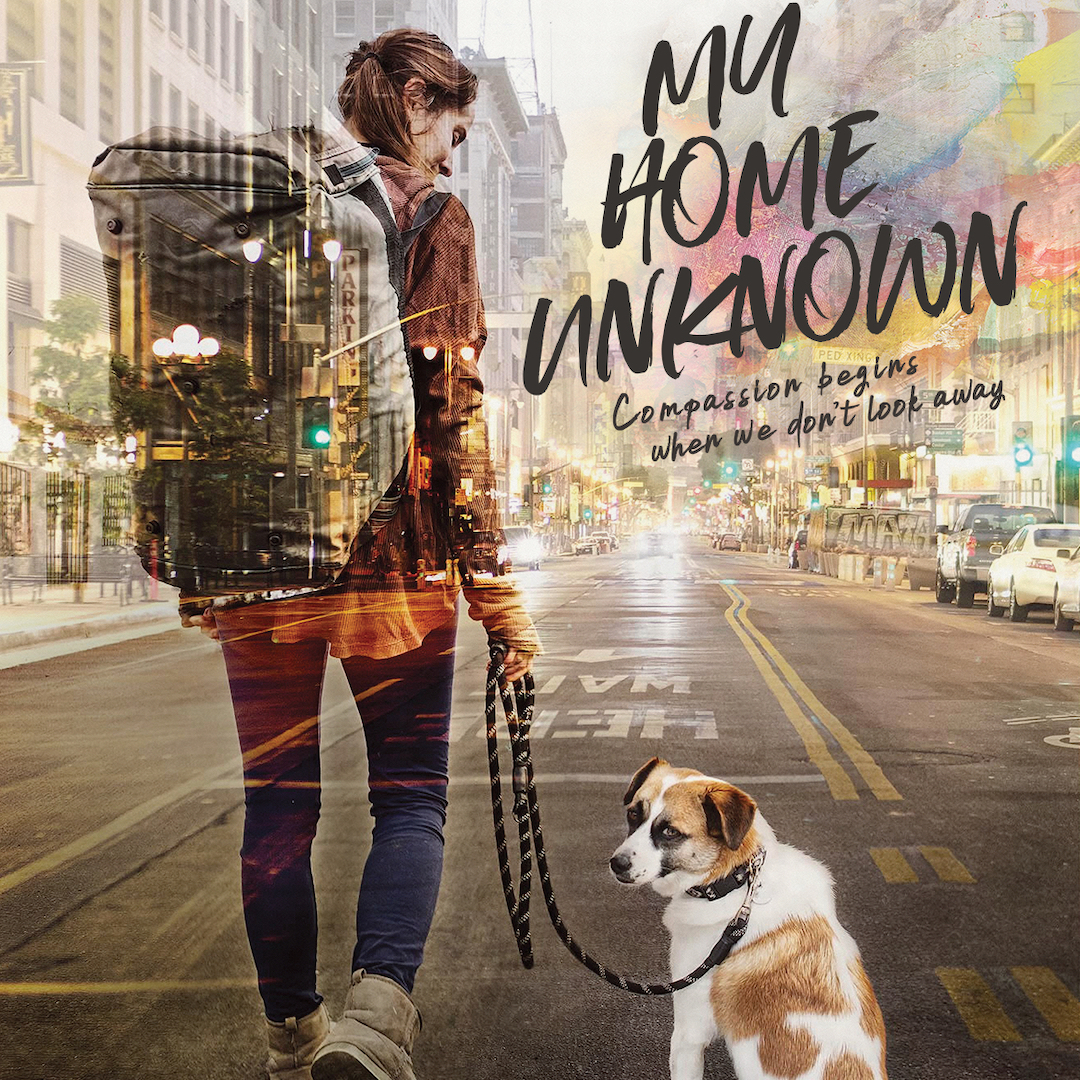 A collective groan could be heard across the world throughout the pandemic. COVID disrupted everyone’s lives and intensified inequalities. Among those hit hardest by the disease are people with disabilities, who are more likely to live in poverty and, for some, on the streets.
A collective groan could be heard across the world throughout the pandemic. COVID disrupted everyone’s lives and intensified inequalities. Among those hit hardest by the disease are people with disabilities, who are more likely to live in poverty and, for some, on the streets.
Filmed at the height of the pandemic, Yaz Canli’s directorial debut My Home Unknown brings attention to this pressing social issue. The film follows the journey of Mina (Yaz Canli) living on the streets of Los Angeles and experiencing the downward spiral of a mental health crisis, namely schizophrenia. Mina must wrestle with the abusive voices in her mind, while contending with the harsh realities of her present and grief of her past, to find her way home.
Canli said, “My Home Unknown is a fictional story that was inspired by various elements, such as the immediate reflection of the world that was building up around me during the pandemic, an immense increase in encampments and people losing housing in Los Angeles, as well as the effects this had on mental health in our communities.”
In a nutshell, the pandemic and resulting economic fallout exacerbated housing insecurity. An estimated 150 million people are homeless worldwide as of 2021, according to the World Economic Forum.
The film’s social cause attracted high profile supporters, including Executive Producers Lawrence Kasanoff (Terminator 2, True Lies, Mortal Kombat) and Oscar and Grammy winner Jimmy Ienner. Diane Foster, founder of WallyBird Productions, produced the film, and Michael Lloyd (Dirty Dancing) created its soundtrack.
Schizophrenia affects less than 1% of Americans. Because it’s uncommon and stigmatized, schizophrenia is one of the mental illnesses prone to the Villain trope. A disproportionate number of disabled characters in films are villains, depicted as violent, dangerous, and depraved. Most of the disabilities represented by this archetype are ones the public are unfamiliar with. As a result, the public absorbs a lot of fear and misinformation, and many begin to believe that disabled people, especially those with mental illnesses, must be avoided.
However, the capacity for humanity shrinks when people look away. And so, the ones experiencing homelessness, mental illness, substance abuse—the ones who need to be seen—face negative stereotypes and increased barriers to getting help. My Home Unknown explores this complexity through a woman’s perspective, touching on the specific challenges women face on the streets, such as the lack of menstrual products and increased vulnerability to assault, whether it be sexual, physical, or verbal.
Many of the scenes focus on Mina walking alone throughout Los Angeles, illustrating the social isolation she faces daily. Watching the film is a colorful, jarring, and disorienting experience, because Mina usually wakes up in a different place after experiencing an episode. Clever camera cuts offer deeper insight into the mind of schizophrenia.
There may be some criticism about a non-disabled lead playing a disabled character. To ensure the representation was as authentic as possible, Canli invested a great deal of time and thought into preparing for her role: “As an actor, I have worked on many roles with mental illness and have spent years on and off researching human behavior, talking to and reading about people’s experience with schizophrenia and bipolar. A member of my core crew also has cases of schizophrenia in his immediate family, and we had many long conversations about certain behaviors and patterns. I have a young man in my extended group of friends that is going through the experience of homelessness and severe mental illness.” Canli also consulted with “leading specialists in Psychology from Harvard and the McLean Hospital because a respectful portrayal of the illness is of utmost important to [her] in a fictional storyline.”
The reality is that more than 95% of disabled characters on television are played by non-disabled actors. To ensure authentic representation and casting, there needs to be more action taken to increase the talent pipeline, whether that be creating mentorship opportunities or giving roles to lesser-known actors. Such change begins with discussion, discussion comes from a change of heart, and a change of heart comes from exposure to disabled people and characters in media.
My Home Unknown stands as the only current movie about a woman experiencing homelessness and a mental health crisis. Canli said, “I am honored to [introduce] audiences to some of the many incredible non-profit organizations that we have built relationships with as collaborators, such as The Downtown Women’s Center Los Angeles and The United Way LA. There are many ways we can support by volunteering, donating, educating, signing petitions, etcetera.”
“But it all begins with compassion.”
My Home Unknown premiered June 28 at the TCL Chinese Theatre in Hollywood through Dances with Films Film Festival.







